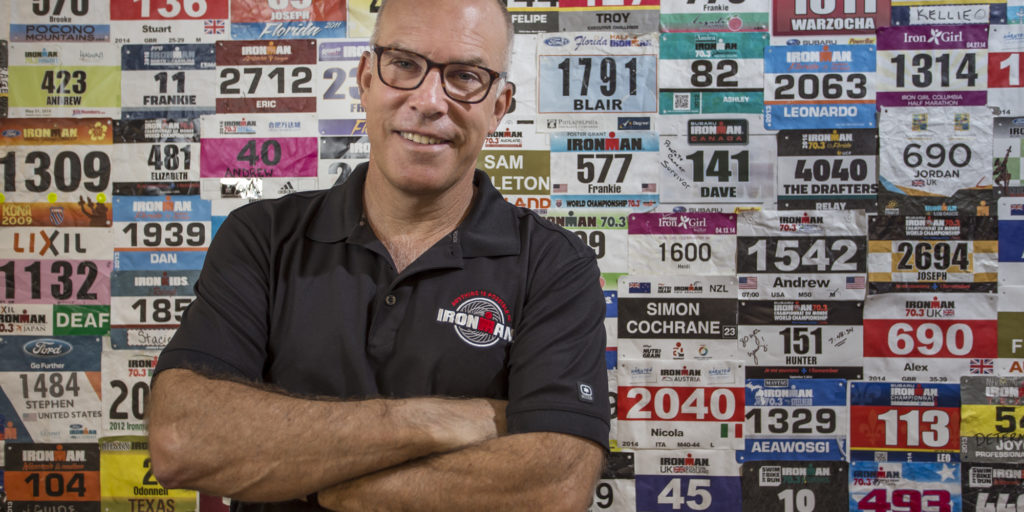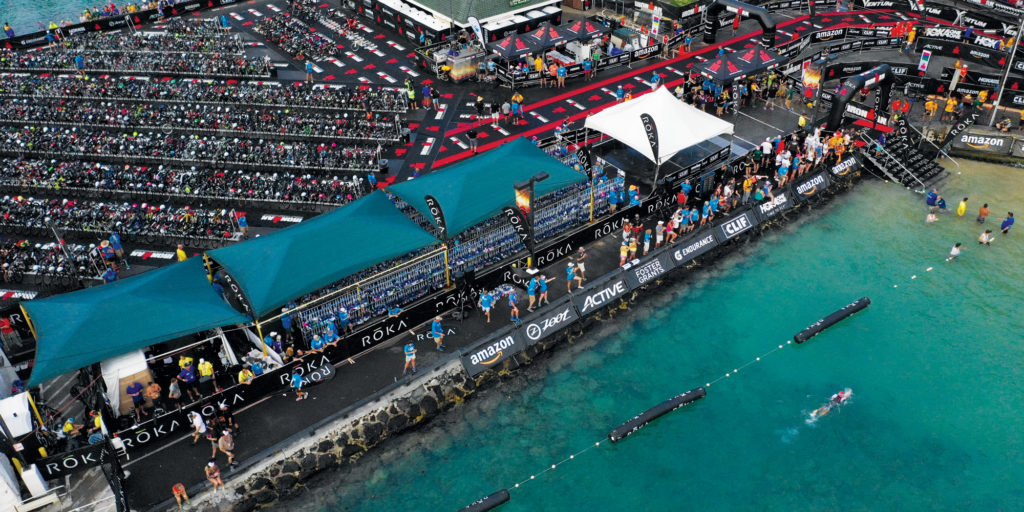The Ironman Group — producer of events like the iconic Ironman triathlon, Ironman 70.3 and Rock ‘n’ Roll Marathon series — quietly runs its 53-country operation from here in Hillsborough County. As Ironman CEO Andrew Messick sees it, they wouldn’t want to be anywhere else. “For all of us, it’s important to us that our team members that work and are living their lives here are in a place that is amenable to them and welcoming to them,” Messick says. “We’ve been really, really pleased with Tampa.”
St. Luke’s Cataract & Laser Eye Institute founder Dr. James Gills bought the Hawaii-based Ironman brand in 1989, moving its headquarters to his hometown of Tarpon Springs, then eventually Tampa. What started as a challenge among friends (“Swim 2.4 miles. Bike 112 miles. Run 26.2. Brag for the rest of your life,” per co-founder John Collins) in 1978 has grown to 230-plus events around the world. Though Ironman is now owned by the Chinese Wanda Sports Group, the company is as committed as ever to Tampa.

So how hard is it to run a global corporation from a growing city far from most of the international hubs where Ironman typically conducts business?
“It’s easier than you think,” Messick says, thanks in no small part to Tampa International Airport and its direct flights to cities like London, Zurich and Frankfurt — all destinations that are key to Ironman’s operations.
“I don’t want to understate [this] — the airport’s fantastic,” Messick says. “It’s super easy. It’s super convenient. It’s a surprisingly good international gateway.”
With developers like Jeff Vinik frequently verbalizing their desire to bring more corporate headquarters to Tampa, Messick is uniquely positioned to analyze the city’s appeal and shortcomings for a global company. Tampa is already checking many important boxes for a headquarters location, Messick says (including, yes, the airport).
“To be an international headquarters, the airport matters a ton. A huge part of what all of us do is travel for a living,” he says. “In attracting international corporations, education is a big deal. [As is] being able to have a place where people are confident to educate their children, a place that’s safe, a place that’s affordable, and a place where, increasingly, there’s opportunities for trailing spouses.”
As Tampa’s workforce population continues to diversify in nationalities and backgrounds, Messick believes like will attract like.
“For real international companies, access to people who have language and cultural skills is really important. Tampa’s reasonably good at that,” Messick says. “I think for Tampa to continue to be an important international headquarters city, that needs to continue and potentially even accelerate.”
Still, Messick says, the Bay area’s explosive growth in his eight-year tenure as CEO has made it increasingly easier to recruit talented employees. He’s a triathlete himself, proudly displaying his growing collection of medals in his office, and encourages Ironman’s team members to find their own physical passion, whether it’s a smaller race like Irongirl or the full triathlon. “I think it’s important that everyone in our company understands how our athletes feel and know what it’s like to prepare for an event, to put on a race number, to stand on the starting line, to feel the nervous butterflies before you compete,” Messick says.
Many of the company’s corporate employees got their first up-close look at the intricate logistics that go into putting on an Ironman last fall, when the Florida Ironman moved from Panama City Beach to Haines City in the aftermath of Hurricane Michael. The storm hit the Florida Panhandle less than four weeks before the race, leaving Messick and his team — who were in Hawaii for the Ironman World Championship — scrambling to move the event. Haines City, which hosts the smaller Ironman 70.3 event each year, quickly stepped up to the plate.
“We came up with a shortlist of places we could potentially move the race, and within 24 hours, Haines City said, we’ll do whatever you need us to do,” Messick says.
The corporate team essentially relocated to Polk County for a time to put together an event for their home state that Messick deems “pretty good, all things considered.”
“It was really one of our finest hours, to be able to do that — especially here in Florida.”
While there are no immediate plans to launch a full Ironman event in the immediate Bay area (the logistics — particularly the road closures involved in the bike course — require a less densely populated area of land, Messick notes), it’s a possibility, Messick says. What’s for sure is that Ironman’s corporate headquarters isn’t going anywhere anytime soon.
“There are many parts of the world, and many places in the United States, where it’s expensive to live. You spend a ton of time in your car,” Messick says. “Tampa has the ability to deliver a life to a lot of people that’s just better in that respect.”




